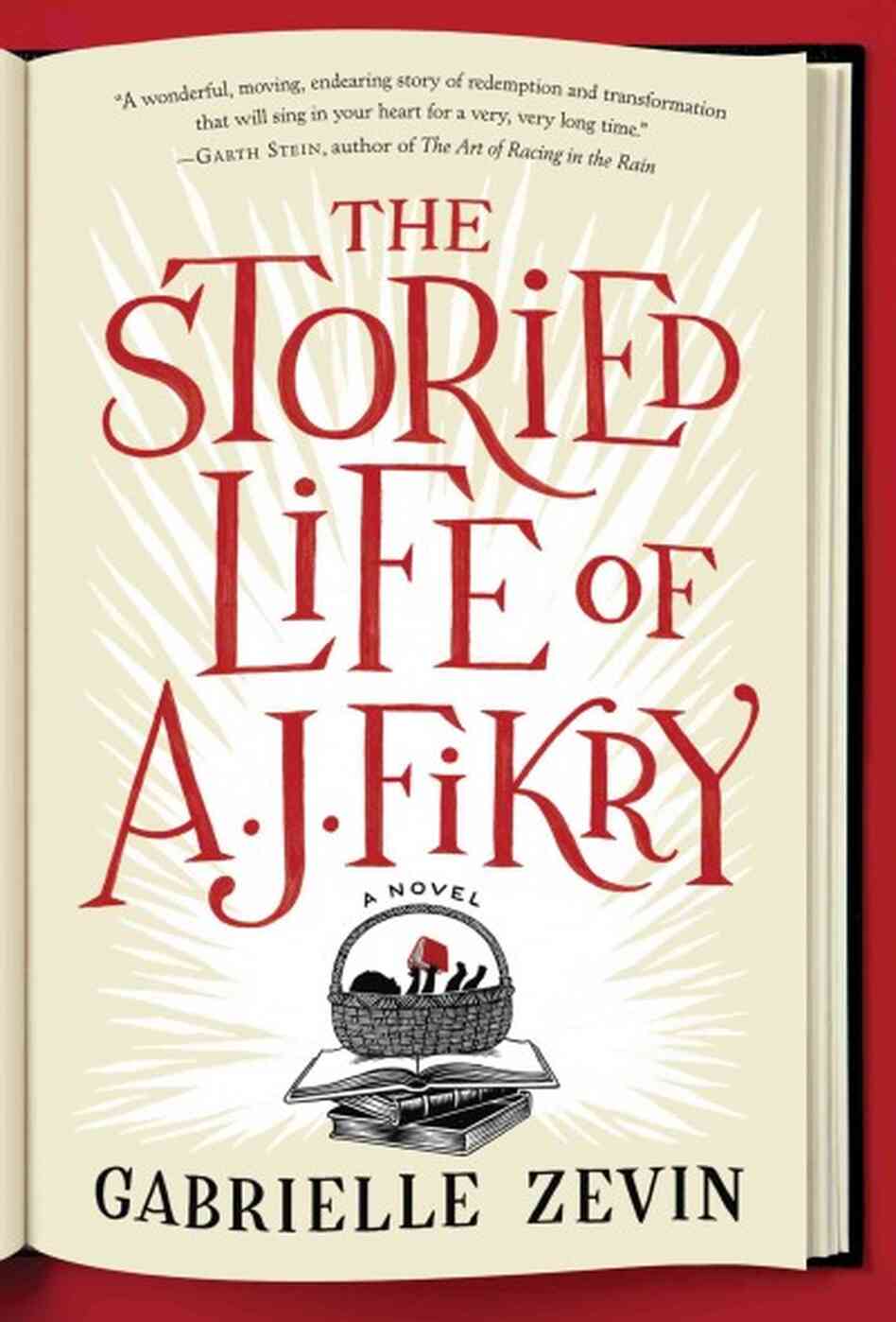I can't remember how, exactly, I found out about her new adult novel, The Storied Life of A.J. Fikry. I have a hunch that it was a book recommended on Amazon based on my other browsing interests, but I'm not sure that it was. But somehow the book ended up in one of my orders, and arrived a few days ago. I sat down last night and started the book in the early evening. I can say that I literally finished it in one sitting, because I did not move from the couch even once in the few hours it took to read the book.
The Storied Life of A.J. Fikry is one of my favourite books of the year. It's the kind of book I want to buy for Christmas and birthday presents for other people, and the last book I felt that way about was published in 2011: Your Voice in my Head by Emma Forrest (I think I've bought and given away at least a dozen copies of that book).
I'll start with the structure of the book, because I don't want to say too much about the content. I started reading without knowing anything about the plot: it's hard for me to skip over the synopsis on the book jacket (I want to know what I'm getting in to!), but I was in such a hurry to start this book that I just…started. Reading with that kind of blank slate was incredible. It's so rare that I don't read a book review before reading a book, or get a book recommendation, or hear about a new publication word-of-mouth. I love having access to that sort of paratextual material, but sometimes I miss the surprise of venturing into a book that I don't know anything about.
In Zevin's book, the chapters are named after short stories as varying as Roald Dahl's "Lamb to the Slaughter," Flannery O'Connor's "A Good Man is Hard to Find," J.D. Salinger's "A Perfect Day for Bananafish," and Edgar Allan Poe's "The Tell-Tale Heart." And each chapter is prefaced with bookseller A.J. Fikry's recommendation of the short story, and the reason why he likes it. So the prefaces to the book chapters become a sort of short story recommendation, from fictional bookseller to reader. But they go farther than that. They set up the chapter, and allude to what is to come in the rest of the book: for example, Fikry's short story write-ups introduce new characters, further the development of old ones, and give away important elements of the plot. Zevin shows that we can know people through what they read, and give us a glimpse into why they read.
A.J. Fikry, the protagonist of this novel, owns Island Books. It's located on a small island on the east coast, and Fikry lives above the store in a small attic apartment. He recently lost his wife, and he's slowly trying to drink himself to death. The arrival of a new sales rep for Knightley Press marks a change in the quiet life of A.J. Fikry. Fikry is unhappy and devastated by the loss of his wife, and, as a result, he is immeasurably rude to Amelia (the book rep) as she tries to tell him about the new books in the catalogue. Fikry responds,
How about I tell you what I don't like? I do not like postmodernism, postapocalyptic settings, postmortem narrators, or magic realism. I rarely respond to supposedly clever formal devices, multiple fonts, pictures where they should't be - basically, gimmicks of any kind. I find literary fiction about the Holocaust or any other major tragedy to be distasteful - nonfiction only, please. I do not like genre mash-ups a la the literary detective novel or the literary fantasy. Literary should be literary, and genre should be genre, and crossbreeding rarely results in anything satisfying. I do not like children's books, especially ones with orphans, and I prefer not to clutter my shelves with young adult. I do not like anything over four hundred pages or under one hundred fifty pages. (13)Of course, all of these disliked books and more make an appearance at some time in the novel, when they are recommended, read, and loved (sometimes by Fikry himself). And Fikry's life slowly becomes a story itself, full of larger than life characters, surprising events, and small moments of empathy. Zevin's new novel is about sharing a love of reading, and the way books can change lives. The Storied Life of A.J. Fikry will be a book that I'll be recommending for the rest of the year, a perfect examination about why we read and the stories we choose to share.





No comments:
Post a Comment